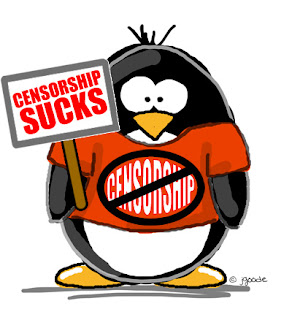Nakhonratchasima, Thailand — Thai Prime Minister Abhisit Vejjajiva last week assured journalists in the country that his government respected freedom of the press and would facilitate their work.
Speaking at the Pattaya campus of Thammasart University, Abhisit said, “The government wants to see media freedom and will facilitate the operations of members of the media to achieve freedom of expression.”
The speech, titled, “Media Lessons: The Power of the State, the Power of Capital, and the Power of the People,” was part of a seminar held jointly by the Thai Journalists Association, the Thai Broadcast Journalists Association, the Press Council of Thailand and other organizations.
Touted as a forum for media professionals to “expand their networks and cooperation,” the real purpose of the event seemed to be to ensure that Thailand’s media toed the line in its reporting.
Although the Thai government is supposedly democratic, the Democrat-led government has done no more than murmur when police have raided human rights offices, and demurred comment when innocent citizens and foreigners have been arrested for suspected insults to the monarchy – these considered not only offensive but also a “threat to national security.”
Each succeeding Thai government, whether professing to be democratic or nationalistic, “concerned for its citizens” or dealing with “difficult circumstances,” has seen fit to close down newspapers, shut down radio and television broadcasts and arrest journalists and others who were creating “inaccurate” images of what was happening in the kingdom.
To help ensure that such actions are reduced and newspapers and other media are not forcibly closed, they are now being given strict guidelines and informed how they can cooperate with the government to ensure national security, so the kingdom can achieve reconciliation and harmony.
In other words, news reports of government activities, personalities, corruption and the undermining of democratic institutions are likely to diminish, as the new rules will clearly prescribe just how far inquiry can proceed and what scope it will be permitted to encompass.
The new rules have already been sharply defined and are being reinforced with criminal law provisions. The kingdom’s computer crime law, for example, has already been used to stamp a 10-year prison sentence on Suwicha Thakor, an Internet user who allegedly spread defamatory remarks about the monarchy online.
More recently the Thai government amazed human rights and democracy watchers worldwide by announcing last week that it would demand the power to approve all programming before it is broadcast.
The announcement by Sathit Wongnongtoey, the minister in charge of the prime minister’s office, indicated that new regulations would permit “authorities” to act against broadcasters airing content “deemed” to undermine democracy.
Sathit said, “Once the regulations take effect, any broadcast station airing content deemed to be politically incendiary will not be allowed to operate.”
It’s very difficult to differentiate between what’s politically incendiary and what is not. Obviously the Thai government feels there is no need to define such differences, because it has taken it upon itself to deem and define.
In this ability to act almost without restraint in the name of national security, the government now parallels its Chinese, Burmese, Lao, Cambodian and Burmese counterparts in quashing almost anything it deems needs quashing.
These worrisome developments in Thailand, part of a general trend toward limiting, inch by inch, the power of the people in the name of national security, seem to have gone unnoticed by Thailand’s friends and neighbors. Perhaps this is because they are mostly either trading partners or brothers-in-crime, involved in exploiting natural resources or other deals.
The prognosis for the future of democracy in Thailand is not good. Despite the promises of press freedom, there are rumors of leaders meeting in secret sessions in Parliament and the Cabinet to deliberate how to retain power while keeping the media quiet.
For the time being Thailand’s relations with the West will likely remain relatively cordial, but as time goes on, the attitude of the internal state security apparatus may eventually work its way outward to identify once close allies as enemies of the state. The Thai people themselves, however, have already become the first victims of this new regime.
--
(Frank G. Anderson is the Thailand representative of American Citizens Abroad. He was a U.S. Peace Corps volunteer to Thailand from 1965-67, working in community development.
A freelance writer and founder of northeast Thailand's first local English language newspaper, the Korat Post – www.thekoratpost.com – he has spent over eight years in Thailand "embedded" with the local media. He has an MBA in information management and an associate degree in construction technology. ©Copyright Frank G. Anderson.)
Speaking at the Pattaya campus of Thammasart University, Abhisit said, “The government wants to see media freedom and will facilitate the operations of members of the media to achieve freedom of expression.”
The speech, titled, “Media Lessons: The Power of the State, the Power of Capital, and the Power of the People,” was part of a seminar held jointly by the Thai Journalists Association, the Thai Broadcast Journalists Association, the Press Council of Thailand and other organizations.
Touted as a forum for media professionals to “expand their networks and cooperation,” the real purpose of the event seemed to be to ensure that Thailand’s media toed the line in its reporting.
Although the Thai government is supposedly democratic, the Democrat-led government has done no more than murmur when police have raided human rights offices, and demurred comment when innocent citizens and foreigners have been arrested for suspected insults to the monarchy – these considered not only offensive but also a “threat to national security.”
Each succeeding Thai government, whether professing to be democratic or nationalistic, “concerned for its citizens” or dealing with “difficult circumstances,” has seen fit to close down newspapers, shut down radio and television broadcasts and arrest journalists and others who were creating “inaccurate” images of what was happening in the kingdom.
To help ensure that such actions are reduced and newspapers and other media are not forcibly closed, they are now being given strict guidelines and informed how they can cooperate with the government to ensure national security, so the kingdom can achieve reconciliation and harmony.
In other words, news reports of government activities, personalities, corruption and the undermining of democratic institutions are likely to diminish, as the new rules will clearly prescribe just how far inquiry can proceed and what scope it will be permitted to encompass.
The new rules have already been sharply defined and are being reinforced with criminal law provisions. The kingdom’s computer crime law, for example, has already been used to stamp a 10-year prison sentence on Suwicha Thakor, an Internet user who allegedly spread defamatory remarks about the monarchy online.
More recently the Thai government amazed human rights and democracy watchers worldwide by announcing last week that it would demand the power to approve all programming before it is broadcast.
The announcement by Sathit Wongnongtoey, the minister in charge of the prime minister’s office, indicated that new regulations would permit “authorities” to act against broadcasters airing content “deemed” to undermine democracy.
Sathit said, “Once the regulations take effect, any broadcast station airing content deemed to be politically incendiary will not be allowed to operate.”
It’s very difficult to differentiate between what’s politically incendiary and what is not. Obviously the Thai government feels there is no need to define such differences, because it has taken it upon itself to deem and define.
In this ability to act almost without restraint in the name of national security, the government now parallels its Chinese, Burmese, Lao, Cambodian and Burmese counterparts in quashing almost anything it deems needs quashing.
These worrisome developments in Thailand, part of a general trend toward limiting, inch by inch, the power of the people in the name of national security, seem to have gone unnoticed by Thailand’s friends and neighbors. Perhaps this is because they are mostly either trading partners or brothers-in-crime, involved in exploiting natural resources or other deals.
The prognosis for the future of democracy in Thailand is not good. Despite the promises of press freedom, there are rumors of leaders meeting in secret sessions in Parliament and the Cabinet to deliberate how to retain power while keeping the media quiet.
For the time being Thailand’s relations with the West will likely remain relatively cordial, but as time goes on, the attitude of the internal state security apparatus may eventually work its way outward to identify once close allies as enemies of the state. The Thai people themselves, however, have already become the first victims of this new regime.
--
(Frank G. Anderson is the Thailand representative of American Citizens Abroad. He was a U.S. Peace Corps volunteer to Thailand from 1965-67, working in community development.
A freelance writer and founder of northeast Thailand's first local English language newspaper, the Korat Post – www.thekoratpost.com – he has spent over eight years in Thailand "embedded" with the local media. He has an MBA in information management and an associate degree in construction technology. ©Copyright Frank G. Anderson.)








